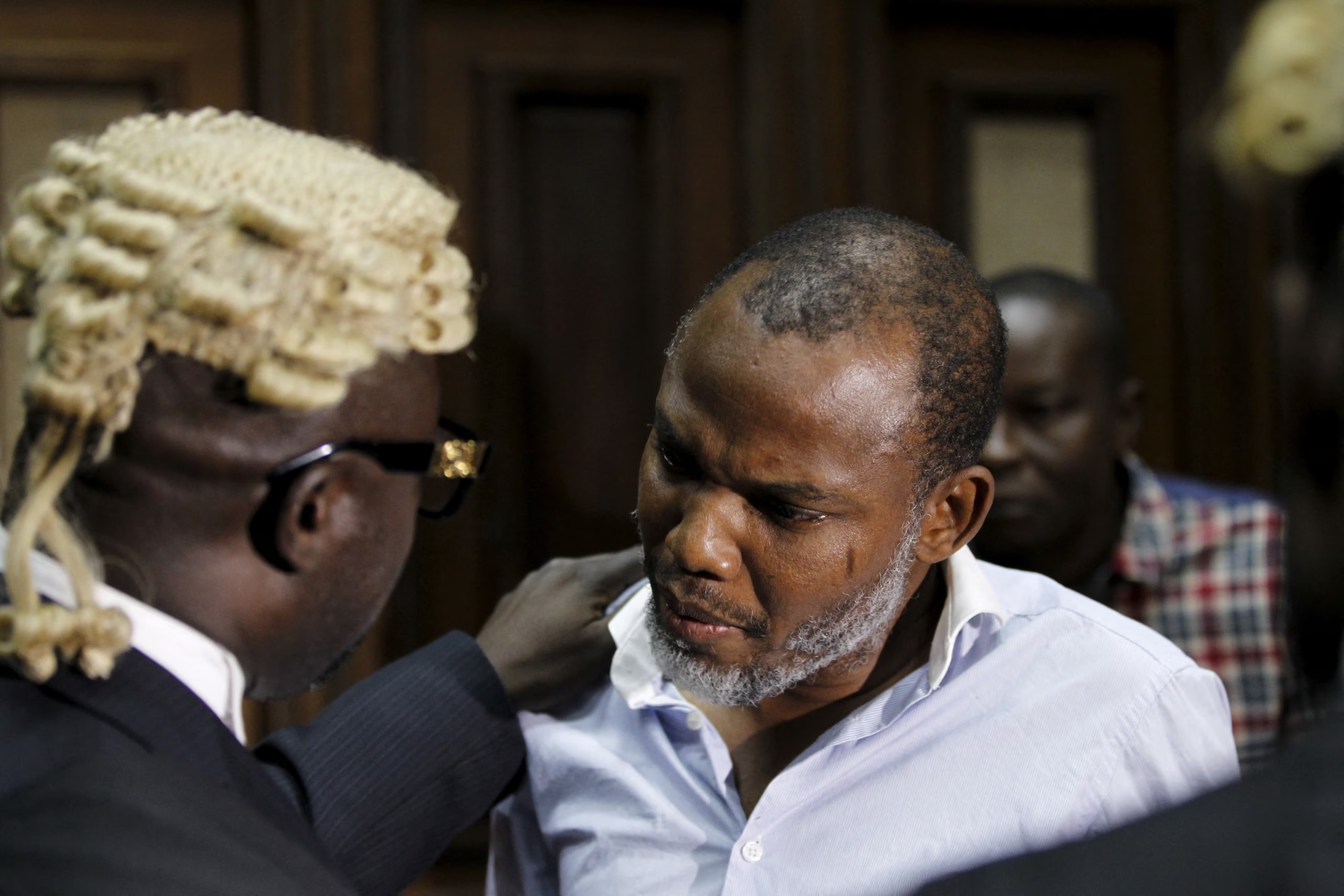
A Nigerian court has found separatist leader Nnamdi Kanu guilty of terrorism, ruling that a series of his broadcasts amounted to incitement to violence as part of his campaign for an independent Biafran state in the south-east.
Kanu has so far been convicted on six of seven terrorism-related counts, with the judge still delivering the full ruling.
The court said it was satisfied that Kanu’s statements encouraged attacks and killings, describing his actions as preparatory steps towards terrorism.
“Mr Kanu knew what he was doing and was intent on carrying out these threats without regard for his own people,” Judge James Omotosho said, adding that the evidence against him stood unchallenged and that Kanu had failed to adequately explain his conduct.
Kanu, who grew up in south-eastern Nigeria and briefly attended the University of Nsukka before moving to the United Kingdom and obtaining British citizenship, was a marginal figure until 2009, when he launched Radio Biafra from London. The station called for an independent state for the Igbo people and beamed its message into Nigeria.
He went on to establish the Indigenous People of Biafra (IPOB) in 2014, a movement demanding secession. The Nigerian government banned IPOB as a terrorist organisation in 2017, and its armed wing, the Eastern Security Network, has since been blamed for killings and other violent incidents in the region.
Before the verdict was handed down, Kanu argued that the proceedings could not legally continue because he had not submitted his final written address, accusing the judge of bias and misapplying the law. The judgment was ultimately delivered after he was forcibly removed from the courtroom for disruptive behaviour.
Kanu was first arrested in October 2015, but fled the country after jumping bail in 2017 following a military raid on his home. His bail was formally revoked in 2019, and he was detained again in 2021 after being seized in Kenya and brought back to Nigeria.
Demands for an independent Biafra date back decades. In 1967, Igbo leaders declared the Republic of Biafra, triggering a civil war in which up to a million people died before the secessionist attempt was crushed.
